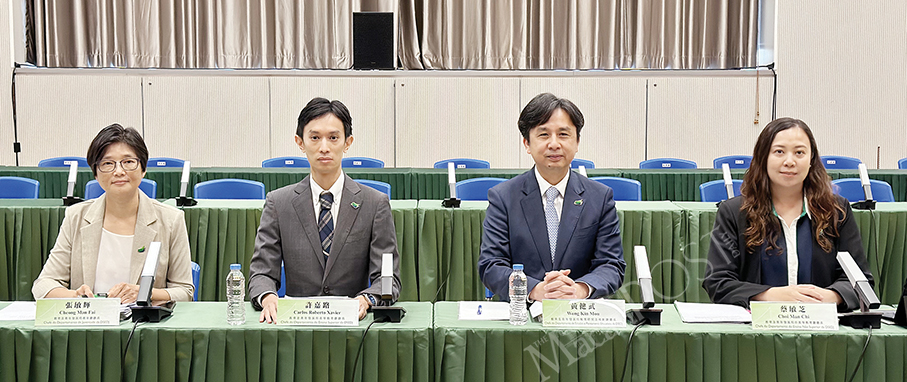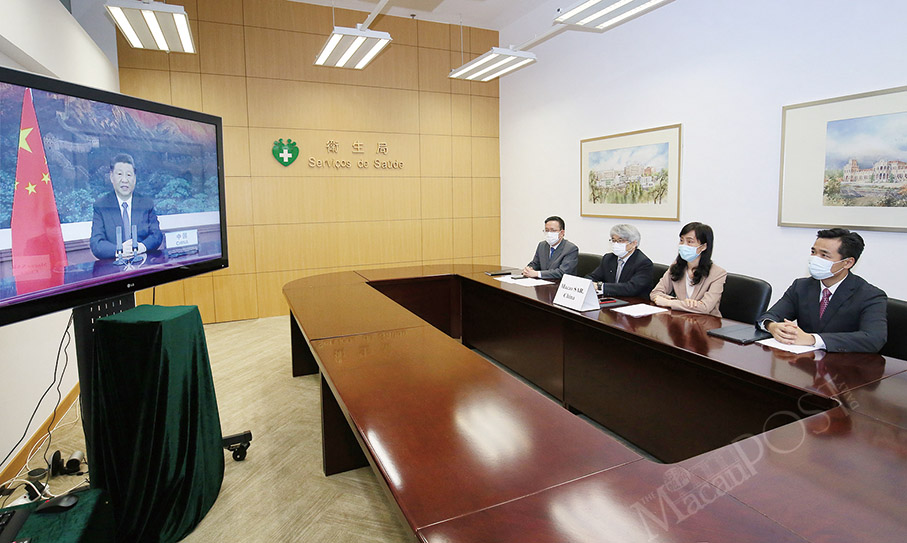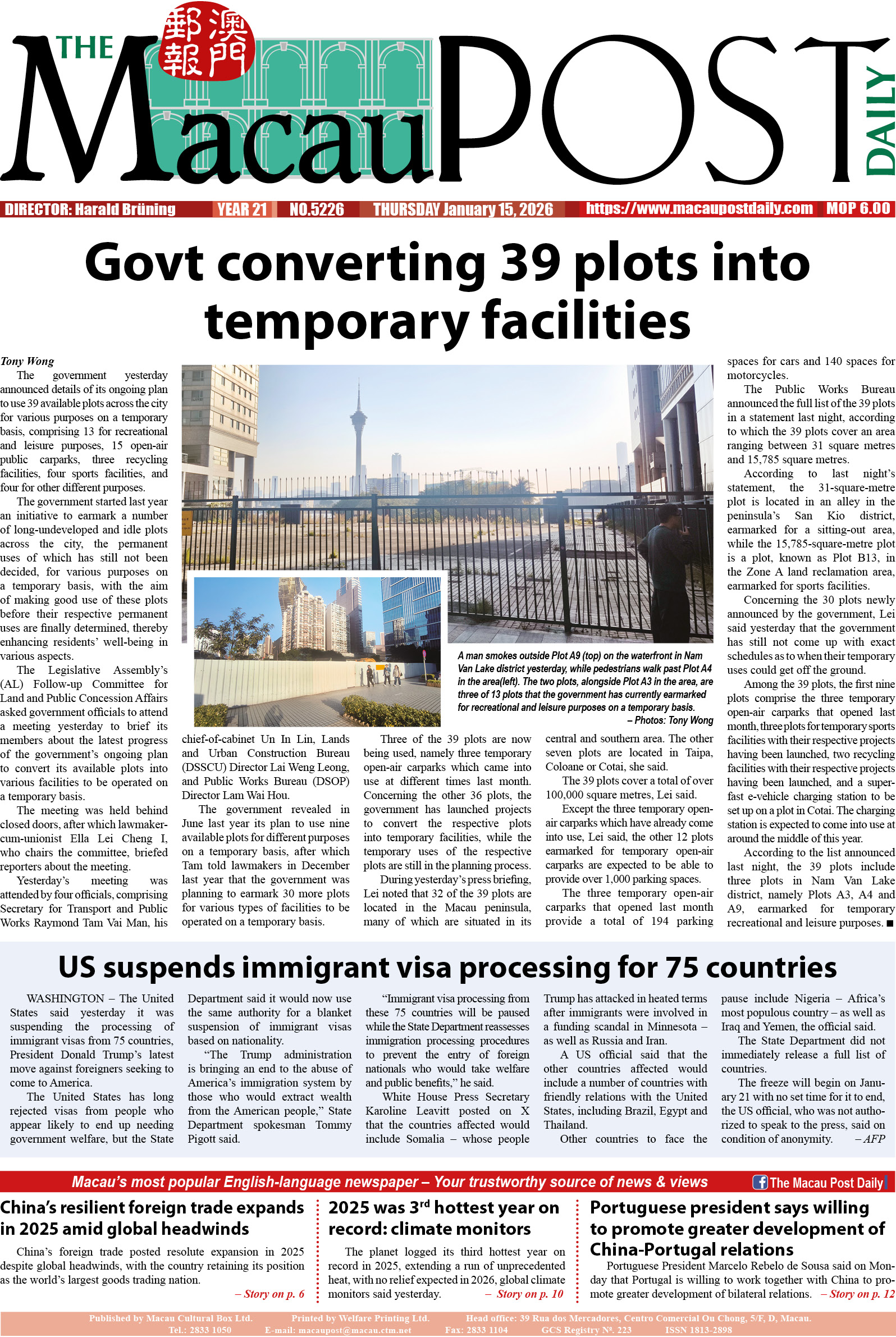The Education and Youth Development Bureau’s (DSEDJ) Research and Educational Planning Department Chief Wong Kin Mou reaffirmed yesterday that the compilation of supplementary teaching materials on Macau’s revised National Security Law has been launched, adding that the materials would be gradually put into use at all levels of education from the next school year, comprising pre-school facilities, primary and secondary schools, and tertiary education.
The next school year starts in September 2024.
Secretary for Social Affairs and Culture Elsie Ao Ieong U announced during a Legislative Assembly’s (AL) hemicycle late last month that the government will complete the publication of a full set of supplementary teaching materials for National Security Education and put them into use next year, striving to strengthen Macau’s patriotic education.
The supplementary teaching materials, according to Wong, will also be published in English, in addition to Chinese and Portuguese, so that they could be used by all local schools. Wong said he hoped that the materials will be used as a “support measure” to enable students to gain a better understanding of national security concepts.
While Chinese and Portuguese are Macau’s official languages, English is widely seen as the city’s long-established lingua franca.
When asked whether National Security would be a compulsory subject for students, Wong said that in terms of the selection of teaching materials, all schools in Macau have a free choice of formal teaching materials or supplementary teaching materials, reaffirming that the teaching materials the bureau publishes serve only as a support measure for them.
Wong made the remarks during a press conference after a closed-door regular joint meeting of the government-appointed Education Committee and the Youth Affairs Committee, at the Official Luso-Chinese “ Sir Robert Ho Tung” Primary School in Tap Seac district.
UM joins C9 League+
During yesterday’s meeting, DSEDJ Higher Education Department Chief Carlos Roberto Xavier briefed members of the two government-appointed committees on the development of the local tertiary education, pointing out that, for the first time, the public University of Macau (UM) has recently been ranked among the world’s top 200 universities, while the private Macau University of Science and Technology (MUST) now ranks among the 251-300 segment. Roberto Xavier also underlined that the public Macao Institute for Tourism Studies (IFTM) now ranks 10th in the world and 1st in Asia, in the “Hospitality and Leisure Management” discipline.
In addition, the University of Macau has recently become a member university of the Association of University Presidents of China (AUPC – C9 League+). Universities that are members of the C9 League also include Fudan University and Shanghai Jiao Tong University, as well as Harbin Institute of Technology.
Roberto Xavier also noted that many of Macau’s higher education institutions have been included in many international university and subject rankings, with their rankings having continued to rise. He also said that Macau’s tertiary education institutions have been “actively” carrying out scientific research and innovation and industry-university-research cooperation in the fields of integrated circuits, traditional Chinese medicine (TCM), smart city development and Internet of Things (IoT), aiming to cultivate professionals for Macau’s four key industries of the future, i.e., big health, modern finance, high-tech, and conventions and exhibitions as well as culture and sport.

The Education and Youth Development Bureau’s (DSEDJ) Youth Department Chief Cheong Man Fai (from left to right), Higher Education Department Chief Carlos Roberto Xavier, Research and Educational Planning Department Chief Wong Kin Mou, and Non-Tertiary Education Department Chief Choi Man Chi look on during yesterday’s press briefing about a closed-door regular joint meeting of the government-appointed Education Committee and the Youth Affairs Committeeat the official Luso-Chinese “ Sir Robert Ho Tung” Primary School in Tap Seac district. – Photo: Yuki Lei






